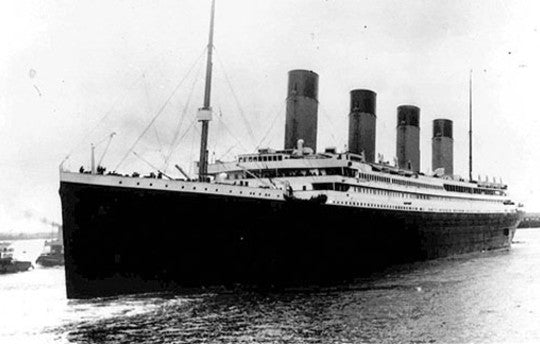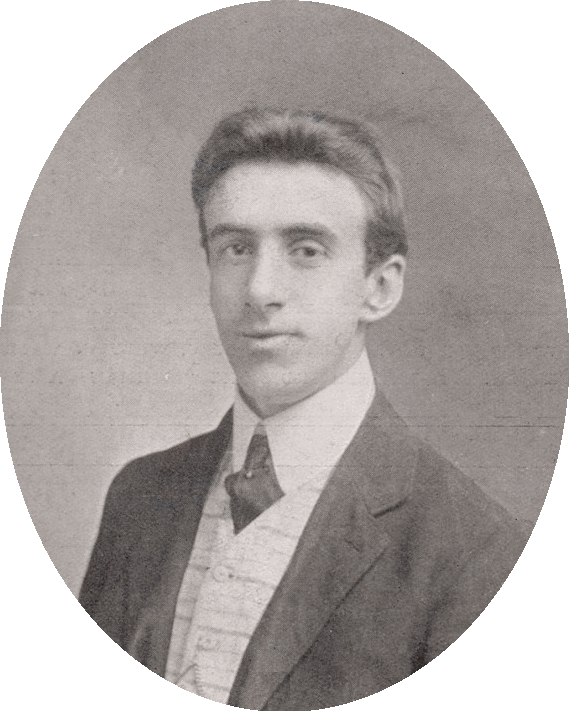Your Cart is Empty

Last night saw the hundred year anniversary of the sinking of RMS Titanic. The most famous ship in the world was built in Belfast and sank in the North Atlantic on her maiden voyage on 15 April 1912. When Titanic was launched she was the largest moving object on the planet. The sinking of this great ship shook the world: it was seen as an event where both wealthy and poor were overpowered by an act of nature. The people on board the Titanic came from all walks of life – there were more than thirty millionaires in first class together with third class passengers. The crew consisted of 900 people, 700 of which came from Southampton – where the Titanic prepared to sail across the Atlantic. That night, there was a loss of more than 1500 souls, but remarkably more than 700 passengers survived. The sinking of the Titanic was viewed as the first global tragedy. Most importantly, the role of music, both off and on board the ship, cannot be underestimated.
 Titanic's house band had actually gone on board as second class passengers. Music played a heavy role in welcoming its passengers onto the Titanic. The first class passengers would have expected a huge range of musical entertainment – ranging from music hall numbers to light opera and rag time. The musicians had to be well versed in such genres. Sometimes the band would also play in the second class saloon. Although, it would not play for third – also known as steerage – class passengers who provide their own musical entertainment in the form of the Irish session. At midnight, it was evident that ship was sinking. As the ship went down, the band proceeded to play ‘cheery’ tunes on deck – to cheer the passengers up. Music was seen as a comforting activity. They played for more than two hours. After the electricity went, band leader Wallace Hartley (pictured above) then dismissed his band and continued to play alone. Wallace went down with the ship, but his body was recovered. Six days after Hartley’s funeral, the Orchestral Association organised a memorial concert at the Royal Albert Hall held in their honour; five hundred musicians from many different orchestras arrived to play at the Royal Albert Hall, Elgar being one of the conductors. The proceeds of the concert went to the musicians’ families. The band members were soon hailed as the heroic musicians of the Titanic.
Titanic's house band had actually gone on board as second class passengers. Music played a heavy role in welcoming its passengers onto the Titanic. The first class passengers would have expected a huge range of musical entertainment – ranging from music hall numbers to light opera and rag time. The musicians had to be well versed in such genres. Sometimes the band would also play in the second class saloon. Although, it would not play for third – also known as steerage – class passengers who provide their own musical entertainment in the form of the Irish session. At midnight, it was evident that ship was sinking. As the ship went down, the band proceeded to play ‘cheery’ tunes on deck – to cheer the passengers up. Music was seen as a comforting activity. They played for more than two hours. After the electricity went, band leader Wallace Hartley (pictured above) then dismissed his band and continued to play alone. Wallace went down with the ship, but his body was recovered. Six days after Hartley’s funeral, the Orchestral Association organised a memorial concert at the Royal Albert Hall held in their honour; five hundred musicians from many different orchestras arrived to play at the Royal Albert Hall, Elgar being one of the conductors. The proceeds of the concert went to the musicians’ families. The band members were soon hailed as the heroic musicians of the Titanic.
After the sinking, Titanic memorabilia was readily available. This included folk songs and ballads and sheet music. Folk songs about the disaster started to appear right away, one of the most popular being a camp song called 'When That Great Ship Went Down', performed by Pete Seeger on this 1999 Smithsonian Folkways album, Headlines and Footnotes: A Collection of Topical Songs.
It is evident that the commemoration of this terrible tragedy was comforted through the acts of music, both off and on board the ship. Musical acts conveyed an immediate sense of public grieving.